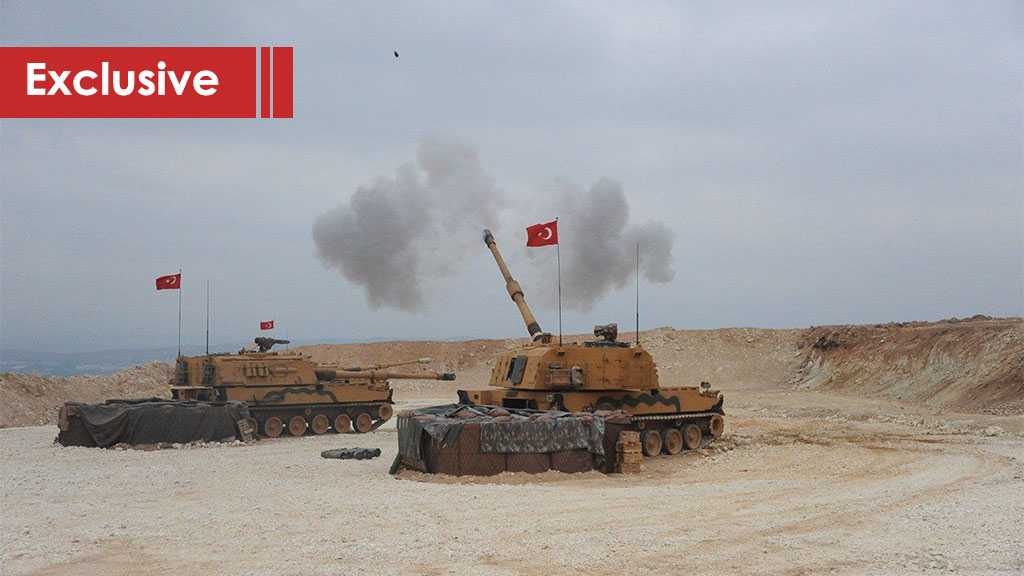
Operation Great and Unmatched Wisdom

By Darko Lazar
US military operations around the globe have always had pompous-sounding code names. From Enduring Freedom, to New Dawn, to Noble Anvil and of course one of today’s more obvious ironies, Inherent Resolve.
Suffice it to say, none of these operations brought much in the way freedom, hope, or as the Kurds are now learning, resolve.
Encapsulating the two defining characteristics of any empire – glory and bloodshed – these military adventures also gave birth to a war-weary American electorate.
The current occupant of the White House, whose central campaign promise is to end pointless and expensive wars, is hoping to capitalize on that sentiment.
And so, US President Donald Trump announced the withdrawal of American forces from Syria.
The plan touched off an uprising among neocons and liberal interventionists over their supposed concerns that the Turks would overrun Washington’s Kurdish ‘allies’.
Trump responded by doing what he does best. He took to Twitter to offer reassurances, and – in keeping with American tradition – he did it with a generous dose of pomposity.
“As I have stated strongly before, and just to reiterate, if Turkey does anything that I, in my great and unmatched wisdom, consider to be off limits, I will totally destroy and obliterate the Economy of Turkey,” Trump tweeted earlier this week.
For some, such remarks are an illustration of Washington’s ‘confused’ foreign policy in the Middle East.
But Washington was never confused. Its foreign policy objectives were always focused on the creation of the “New Middle East” – the obliteration of the Iran-led Resistance Axis, the creation of Kurdish and Wahhabi-run statelets, the alignment of “Israel” and the oil-rich Arab monarchies and the removal of any Russian presence in the region.
Today’s developments in Syria and elsewhere derive from the fact that these foreign policy objectives simply failed.
And so, the US electorate along with the rest of the world is given operation “great and unmatched wisdom”.
This ‘operation’ is not just another US betrayal of the Kurds.
It is the latest chapter in the gradual disappearance of the US umbrella over the Middle East.
Those who harbor anti-American sentiment in the region and beyond have long craved such a development.
But now the time has come to plan for the day after their wishes have come true.
To what extent Trump’s political opponents obstruct or prolong his pullout from Syria, which is far from complete at this point, is not all that relevant.
What is important is for key regional players and Russia to demonstrate that they can guarantee some semblance of security and stability once the hegemon is gone.
Syria & Russia
Syria’s Kurds, who betrayed their home country, endured a cycle of betrayals by the US dating back many decades.
In the latest chapter, the failure of Washington’s federalism project for Syria made the Kurdish militias as well as several hundred US troops in that country more of a liability than anything else.
And once again, in keeping with American tradition, the Kurds were thrown under the bus.
Not surprisingly perhaps, Ankara’s newest offensive into northeast Syria quickly warmed the Kurds up to dialogue with Damascus.
This is the only logical course of action for the Kurds, and the only card they have left to play.
Their aspirations for autonomy did not pan out. And by continuing to delay reconciliation with Damascus, the Kurdish militias are only paving the way for more bloodshed.
An agreement with the Syrian government, whose sole ambition is the retrieval of territory lost to a US-backed militant onslaught, will save a lot of civilian lives.
The Russians have already expressed their readiness to broker such an agreement.
Moscow would never jeopardize its strategic relationship with Turkey by intervening in Ankara’s decades-long spat with the Kurds. But it can afford to press Turkey over Damascus’ legitimate territorial claims.
Iran & Turkey
Kurdish militias along Turkey’s border are certainly a cause for concern in Ankara. Turkey’s grievances with such formations over the instability they cause are indeed legitimate.
However, the answer to this problem is not a Turkish-occupied zone inside Syria.
Rather it rests on the return of the Syrian army to Kurdish-controlled areas and security guarantees from both Damascus and Moscow.
To what extent this logic helps to restrain Turkey’s invasion of Syria is difficult to say. But President Recep Tayyip Erdogna is not exactly eager to anger Moscow, Tehran or even Damascus.
These days, he is no longer seen as a partner in Western capitals, and Turkey is no longer a reliable NATO ally.
The days of shooting down Russian planes and running back into NATO’s warm embrace are gone.
Erdogan is on his own. And the only governments that have an interest in helping him preserve his country’s stability are sitting in Moscow and Tehran.
Meanwhile for the Iranians, the announced American withdrawal from Syria is no cause for celebration. Not yet, at least.
Coupled with American economic warfare against the Islamic Republic and its allies, any US move on the ground is designed to instigate conflict and chaos.
The decline of US influence also makes “Israel” and Saudi Arabia, at the very least, more unpredictable – if not more dangerous.
In the same 24 hours that “Israel’s” Benjamin Netanyahu offered “humanitarian assistance to the gallant Kurdish people”, two missiles struck an Iranian oil tanker off the Saudi coats.
After having lost the battle for influence in the Middle East to Iran, Tel Aviv and Riyadh regard the demise of both Kurdish separatism and American power as absolute catastrophes.
The latest developments leave the “Israelis” and the Saudis increasingly isolated, desperate and facing a whole new set of challenges.



